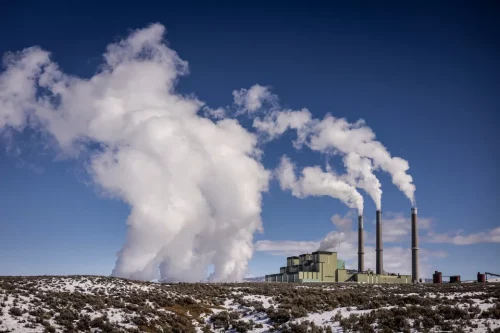The Group of Seven (G7) countries are planning to sign an agreement to end the use of coal for electricity generation by 2035.
This is reported by Reuters.
It is noted that the G7 countries should close their coal-fired power plants in the first half of the 2030s. However, they are given the opportunity to choose a specific date that corresponds to the 1.5°C global temperature increase limit.
This gives room for maneuver to Berlin and Tokyo, whose coal-fired power plants generate more than one quarter of total electricity.
It is reported that Germany has already legislated the closure of coal-fired power plants by 2038, while Japan has not yet decided.
Andrew Bowie, the UK's Minister for Energy Security and Net Zero Emissions Strategy, confirmed the news in an interview with CNBC's Class.
"We will abandon coal in the first half of 2030," the minister said.
The deal to phase out coal would be a big step in the direction set by last year's United Nations COP28 climate summit to phase out fossil fuels, of which coal is the biggest polluter.
"This is another nail in the coffin for coal. The road to phasing out coal has been long: it's been more than seven years since Britain, France, Italy and Canada committed to phasing out coal, so it's great to see that the United States and, in particular, Japan have finally expressed their intentions more clearly," said Ember Global Insights Program Director Dave Jones.
Earlier, EcoPolitic wrote, that in 2023, the ministers of environmental protection of the 27 EU countries agreed on a common position for the international climate conference UN COP28 with softened goals for reducing emissions and abandoning fossil fuels.
At the COP28 climate conference, the UAE presented a softened draft of the final agreement, which does not include a phase-out of fossil fuels.
Participants of the COP28 climate conference signed a historic agreement, which for the first time committed the world to abandon all types of fossil fuels.
Specialists of Economic Laws Practice named the main conclusions and consequences of the climate conference COP28, which should contribute to more decisive climate actions, because the world is not on the way to limit global warming even at the level of 2°C.





